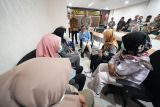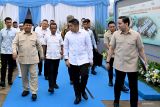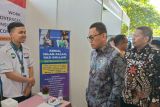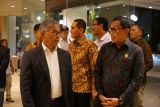Jakarta (ANTARA) - The Ministry of Social Affairs and the Ministry of Indonesian Migrant Workers' Protection are designing a scheme to empower Indonesian migrant workers after they return to the country.
"We are seeking a common ground to tackle the existing problems and improve the welfare of migrant workers," Social Affairs Minister Saifullah Yusuf told the press here on Friday
He emphasized that the protection and welfare improvement of Indonesian migrant workers is one of the tasks assigned by President Prabowo Subianto.
To address the problems of human trafficking and illegal migration of workers, the Ministry of Social Affairs will cooperate with the Ministry of Indonesian Migrant Workers' Protection through offices spread across 31 regions of Indonesia, especially those located in border areas.
Baca juga: Only providing cash aid: Social Affairs Minister
"We have offices that facilitate those who are vulnerable and become victims until they can recover," Yusuf said.
Meanwhile, Indonesian Migrant Workers' Protection Minister Abdul Kadir Karding said that the cooperation is aimed at preventing the exploitation of migrant workers, considering that many workers who return to Indonesia experience various problems that need to be addressed jointly.
Baca juga: Ministry provides food, cash aid for Ternate flash flood victims
Karding expressed the hope that the scheme would serve as a reference for building collaboration between ministries and agencies to address migrant worker issues.
The scheme, according to him, could likely open opportunities for collaboration with other parties, such as the Ministry of Cooperatives, micro, small, and medium enterprises (MSMEs), and state-owned enterprises (SOEs).
"We will create an empowerment scheme that can be a model for cooperation in the future, of course, with measurable targets and appropriate data," he said.
He noted that based on his ministry's data, 65 percent or around 15 million of Indonesian migrant workers remain illegal workers.










